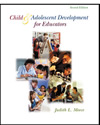 |
1 |  | 
According to Seligman (1980), children at this stage of Perspective-Taking, are unable to recognize that other people may interpret the situation differently from them. |
|  | A) | differentiated perspective-taking (about ages 5-9) |
|  | B) | mutual perspective taking (about ages 10 – 15) |
|  | C) | reciprocal perspective taking (about ages 7 – 12) |
|  | D) | undifferentiated and egocentric perspective taking (about ages 3 – 6) |
 |
 |
2 |  | 
According to Seligman (1980), children at this stage of Perspective-Taking, recognize that others may have different perspectives on a situation, but their interpersonal understanding is unilateral and one-way. |
|  | A) | differentiated perspective-taking (about ages 5-9) |
|  | B) | mutual perspective taking (about ages 10 – 15) |
|  | C) | reciprocal perspective taking (about ages 7 – 12) |
|  | D) | undifferentiated and egocentric perspective taking (about ages 3 – 6) |
 |
 |
3 |  | 
According to Seligman (1980), children at this stage of Perspective-Taking are able to see their own, another person's, and their mutual perspectives from the viewpoint of a third person. |
|  | A) | differentiated perspective-taking (about ages 5-9) |
|  | B) | mutual perspective taking (about ages 10 – 15) |
|  | C) | reciprocal perspective taking (about ages 7 – 12) |
|  | D) | undifferentiated and egocentric perspective taking (about ages 3 – 6) |
 |
 |
4 |  | 
Which of the following is NOT a function of peers cited in your text? |
|  | A) | provide opportunities for role exploration |
|  | B) | provide a context for learning social skills |
|  | C) | provide information about behavioral expectations and norms |
|  | D) | provide a means for rebelling against parental authority |
 |
 |
5 |  | 
According to your text, this is a key determinant of peer rejection. |
|  | A) | aggression |
|  | B) | poor hygiene |
|  | C) | having lots of friends |
|  | D) | being friendly |
 |
 |
6 |  | 
Which of the following is NOT a characteristic often found among popular children? |
|  | A) | social competence |
|  | B) | cooperative |
|  | C) | aggressive |
|  | D) | sensitive |
 |
 |
7 |  | 
What discipline style is associated positively with the development of prosocial behaviors? |
|  | A) | induction |
|  | B) | power-assertive |
|  | C) | authoritarian |
|  | D) | permissive |
 |
 |
8 |  | 
Which of the following is an example of instrumental aggression? |
|  | A) | Linda purposefully breaks Bridget's new doll |
|  | B) | Maddy pushes Belinda off a bike so she can ride it. |
|  | C) | For fun, Jackie starts a rumor that 13 year-old Cyndi wets her bed. |
|  | D) | Every time Ben passes Alice in the hall, he make an inappropriate sexual comment. |
 |
 |
9 |  | 
In which setting are you likely to see more physically aggressive behavior? |
|  | A) | preschool |
|  | B) | primary grade classrooms |
|  | C) | middle school classrooms |
|  | D) | high school classrooms |
 |
 |
10 |  | 
As children age, instrumental aggression declines. What is one reason for this? |
|  | A) | the ability to delay gratification |
|  | B) | repeated punishments |
|  | C) | repeated reinforcement for prosocial behavior |
|  | D) | none of the above |
 |
 |
11 |  | 
Gay and lesbian youth often encounter verbal and physical abuse from their homophobic peers. According to your text, which of the following is a possible outcome of these experiences? |
|  | A) | Gay and lesbian youth are much better adjusted than their heterosexual peers. |
|  | B) | Gay and lesbian youth are more likely than their heterosexual peers to attempt suicide. |
|  | C) | Gay and lesbian youth are more likely than their heterosexual peers to become criminals |
|  | D) | Gay and lesbian youth are more likely than their heterosexual peers to become involved in extra-curricular activities. |
 |
 |
12 |  | 
Bob says he doesn't want to skip school because it just isn't the right thing to do. At which of Kohlberg's levels of moral development would he be? |
|  | A) | preconventional |
|  | B) | conventional |
|  | C) | postconventional |
 |
 |
13 |  | 
Jenni says she doesn't want to skip school because she knows she will be punished. At which of Kohlberg's levels of moral development would she be? |
|  | A) | preconventional |
|  | B) | conventional |
|  | C) | postconventional |
 |
 |
14 |  | 
Joe says he doesn't want to skip school because it's against the rules. At which of Kohlberg's levels of moral development would he be? |
|  | A) | preconventional |
|  | B) | conventional |
|  | C) | postconventional |
 |
 |
15 |  | 
Which of the following is a criticism of Kohlberg's theory? |
|  | A) | moral reasoning and moral behavior may not be linked |
|  | B) | his research was based on men |
|  | C) | both of the above |
|  | D) | neither of the above |
 |



 2002 McGraw-Hill Higher Education
2002 McGraw-Hill Higher Education